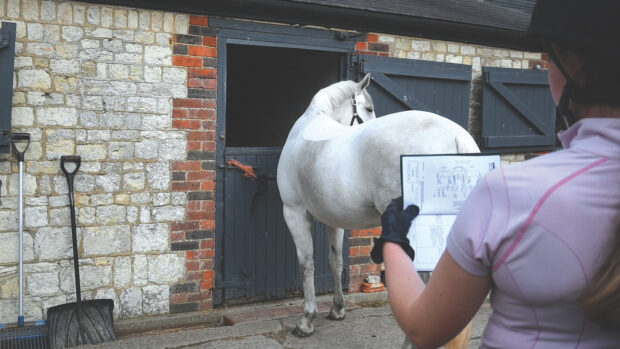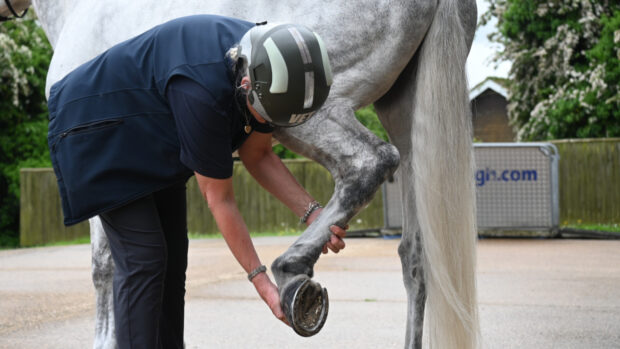A public consultation on equine ID laws is due to be launched in the near future — as the Government makes attempts to streamline international movement of horses.
Defra parliamentary under-secretary of state Lord Benyon gave an update from the Government on equestrian matters at the National Equine Forum yesterday (3 March).
He cited the effect the coronavirus pandemic and Brexit have had on the industry, and said he has discussed equine ID and traceability, and moving animals across borders, with the British Horse Council.
“In relation to this, I’m very pleased to confirm that I have agreed my stage of the formal process to prepare for a 12-week public consultation on equine identification and traceability to shape the future in this area,” he said. “There are a few more approval steps but I expect these to be completed very shortly.”
Proposals include those designed to make it easier to update records on the Central Equine Database (CED), which he believes will “greatly improve the accuracy of the data we hold on equines to support traceability for welfare and biosecurity purposes”.
Lord Benyon added: “Other proposals include the recording of a horse’s habitual location and possibly temporary locations to assist with handling and containing disease outbreaks.
“There is also the possibility of introducing temporary identification for certain situations, such as emergency care for abandoned horses.”
The Government will also seek the public’s views on links to other databases, and digitisation to “speed up processes”, but Lord Benyon added that although this consultation will focus on England, and “we are keen to significantly increase the digitisation of identification”, there are “constraints on our scope to do this”.
“Any changes we make must take account of the position of those countries where we move our horses most often; the EU, Northern Ireland and our devolved administrations of Wales and Scotland,” he said. “Alongside the issue of increase digitisation of equine ID, we are exploring with the EU the scope for the digital transfer of export health certificates, to streamline the movement of equines across borders.”
Lord Benyon said the CED and its digital stable are being developed to support an e-certification system for international horse movements, and that the Government is working with groups including the FEI, Weatherbys and World Horse Welfare to ensure once the ban on live exports for slaughter comes into force, there is a “robust mechanism for only bona fide movements, ie for racing, competition, sales and breeding with high standards of health and welfare”.
“From a Government perspective, ID and traceability, the movement of equines and the enhancements to regulation of our import and export trade are all key elements of this important initiative to support equine welfare, the equine landscape and the circa 27m people in Britain with an interest in the equestrian industry,” he said.
“With all the important work the Government is doing, in collaboration with the industry, to enhance equine trade, improve equine welfare and protect equine health and our national herd, we can all be proud to be part of that.”
You might also be interested in:

Defra light on promises after equine ID system found to be ‘not fit for purpose’

Subscribe to Horse & Hound magazine today – and enjoy unlimited website access all year round

Pressure on Government to remedy horse smuggling, equine ID and cross-border movement

Work ongoing as Brexit delays spark horse welfare concerns
Horse & Hound magazine, out every Thursday, is packed with all the latest news and reports, as well as interviews, specials, nostalgia, vet and training advice. Find how you can enjoy the magazine delivered to your door every week, plus options to upgrade your subscription to access our online service that brings you breaking news and reports as well as other benefits.




